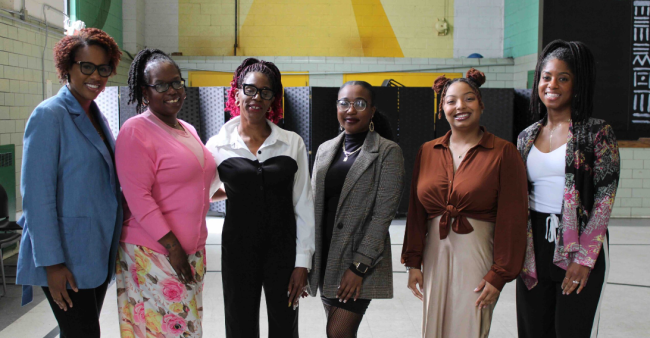
Black women tackle mental health-related issues head-on
FROM LEFT: DR. SARA KYLES ROYSTER, JAQUALA BIBBENS, JAMIE UPSHAW, LAMARA DENE, DR. ALEXUS BROWN, BRITTANY MAXSHURE. (PHOTO BY CHIEF IKHANA-HAL-MAKINA)
Depression, anxiety are the major challenges
It can be sunny and 70 degrees outside; perfect weather, not too hot, not too cold…
And yet, on the inside, people are dealing with issues and challenges that make them want to not even get up in the morning.
Mental health, mental illness is a real thing. Dr. Sharnay Hearn Davis, the founder and executive director of the Sisters Lifting As We Climb Network in Pittsburgh, recently brought together a number of experts in the field of mental health and therapy to speak to an intimate audience of mostly Black women at the Community Empowerment Association in Homewood. The event was titled, “Healing Together: Mental Illness Awareness Event Tailored for Black Women.”
From anxiety, to depression, to a feeling of not being enough, the issues were discussed at the event. But more importantly, for Dr. Davis, it’s about making sure that Black women are being bold enough to speak on the issues that previously, in years past, weren’t talked about openly.
In the Black community, seeing a therapist used to be taboo. Nowadays, it’s becoming as common as going to the grocery store.
Which is a good thing.
Alexus Brown, Ph.D., was the emcee for the event. The Pittsburgh-born-and-raised resident revealed that in 2021, she was officially diagnosed with Major Depressive Disorder and Generalized Anxiety. But for years prior, she had been dealing with the symptoms of those two mental health-related issues.
“I’ve had symptoms of it since high school, but in seeking help, you don’t think, ‘this is mental illness I’m suffering from,’” Dr. Brown told the New Pittsburgh Courier in an exclusive interview after the May 24 event. Dr. Brown said through therapy sessions, along with “surrounding myself with community that understands what I go through and the accommodations I might need, day to day, minute to minute, hour by hour, it has drastically improved my experience in life with mental illness.”
According to an article written by Erica Martin Richards, M.D., Ph.D., and posted on the Johns Hopkins University School of Medicine website, women are at least twice as likely to experience an episode of major depression as men, but Black women are only half as likely to seek help as their White counterparts.
Dr. Richards reported that some signs of depression and mood disorders include: Sleeping more or less than usual; increased or decreased appetite; feeling worthless, hopeless or empty; feeling disinterested and unable to enjoy things that usually bring pleasure; mood swings; feeling out of control; and difficulty concentrating.
For Dr. Brown, the Pittsburgh resident, she said that Black women must have a certain level of vulnerability to admit that there is a problem, and then take the direction from therapists and other licensed professionals.
And for Dr. Davis, she wants Black women to not only understand the certain mental health-related issues that they’re dealing with, but to seek out solutions to the problems.
“When we’re talking about mental health and how it impacts the family, we’re talking about it from a very holistic standpoint,” Dr. Davis told the Courier, as she recalled at the event a mother and daughter who were participants. “The daughter was sharing her personal experience of how she’s experienced mental illness, but then she was also able to empower and encourage her mother as her mother was sharing in real-time that she’s dealing with her own stuff. Her daughter was literally there to empower her, and the mother was also able to get the resources that she needed from the professionals that were in the space.”
Among the other attendees and professionals at the event was Lamara Dene, who told the Courier that she’s battled with depression and anxiety. In her professional career, either in resource coordination or case management, she said she’s worked with a variety of people, and the common denominator was “people and their battles with mental health. I saw how it affected them when it came to decisions that they made that led them into the criminal justice system, or the parents (whose kids have issues with truancy), but a lot of times (the parents) are depressed and they don’t even want to get up in the morning to get them to go to school, so a lot of their kids are trying to take care of themselves, which has led to a lot of the kids that I’ve worked with battling with mental health.”
So how do you deal with mental health battles? Dene said different things work for different people. She likes going to the gym. She likes eating healthier foods.
“Getting to know themselves,” Dene said, “and what works for them and what doesn’t, and then learning how to advocate for themselves.”
Dene also brought up what she calls a big problem—not being properly diagnosed.”A lot of people are not treating the real issue,” Dene said.

DR. ALEXUS BROWN (PHOTOS BY CHIEF IKHANA-HAL-MAKINA)
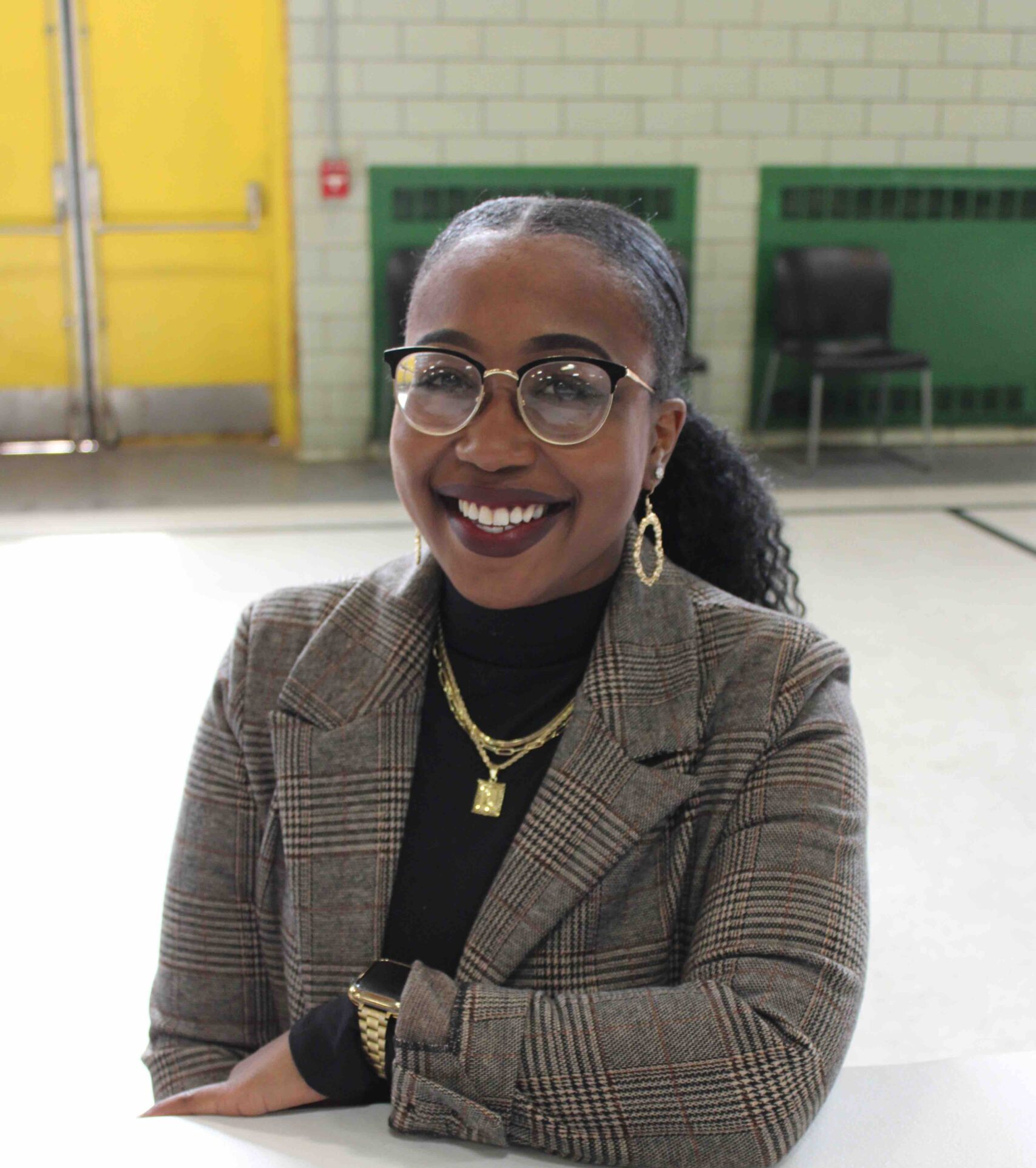
LAMARA DENE
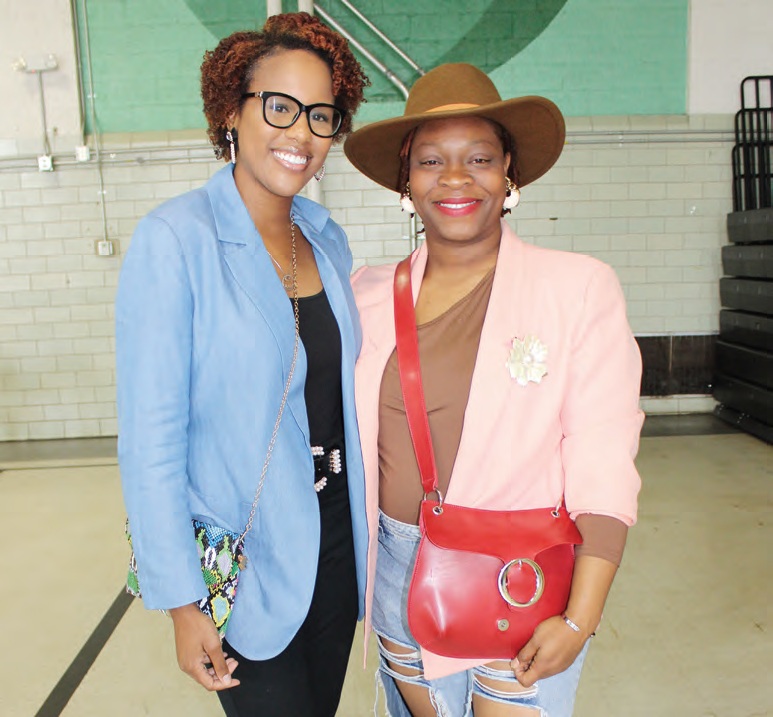
DR. SARA KYLES ROYSTER, SHARMAINE GAMBLE
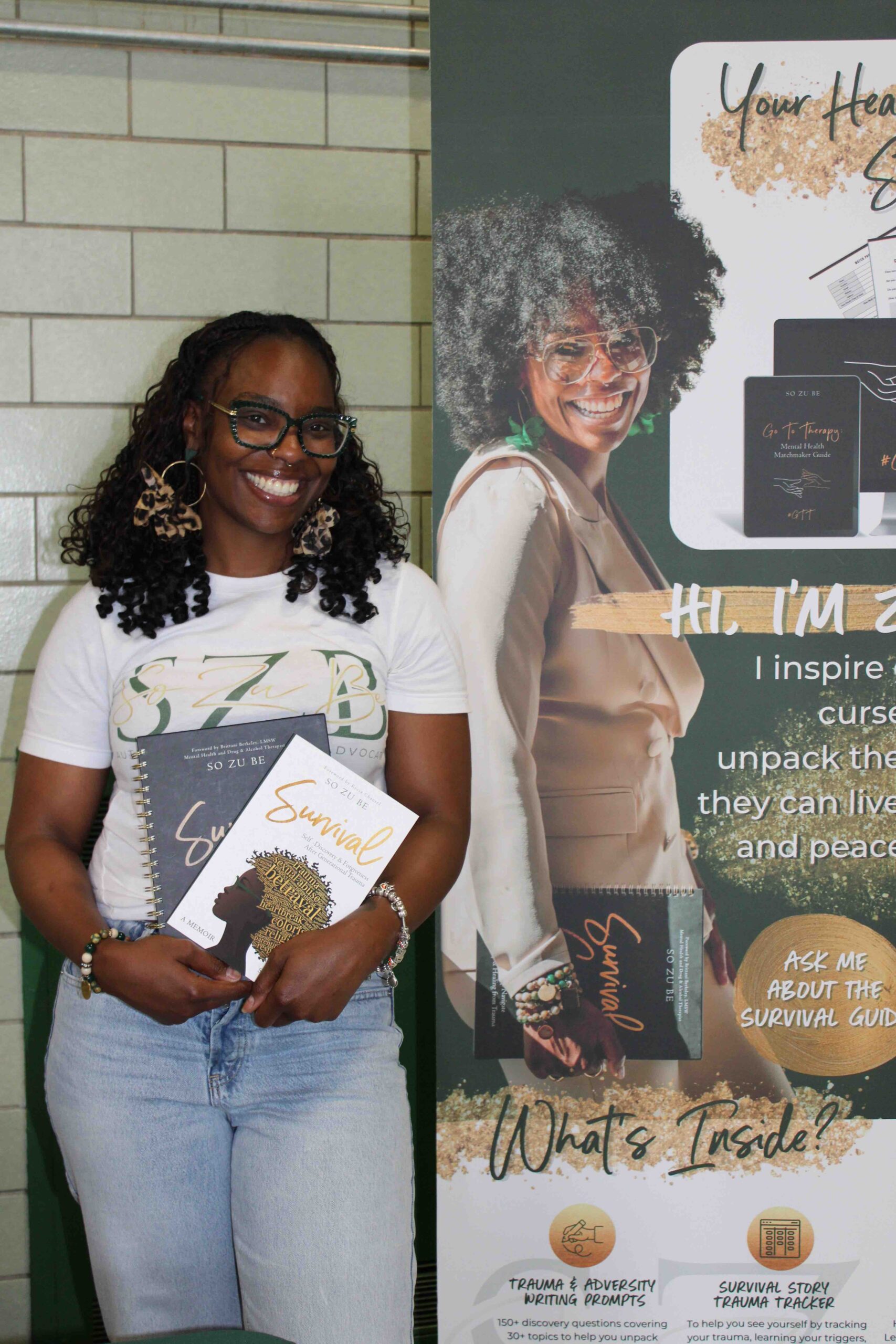
SORAYA BEY
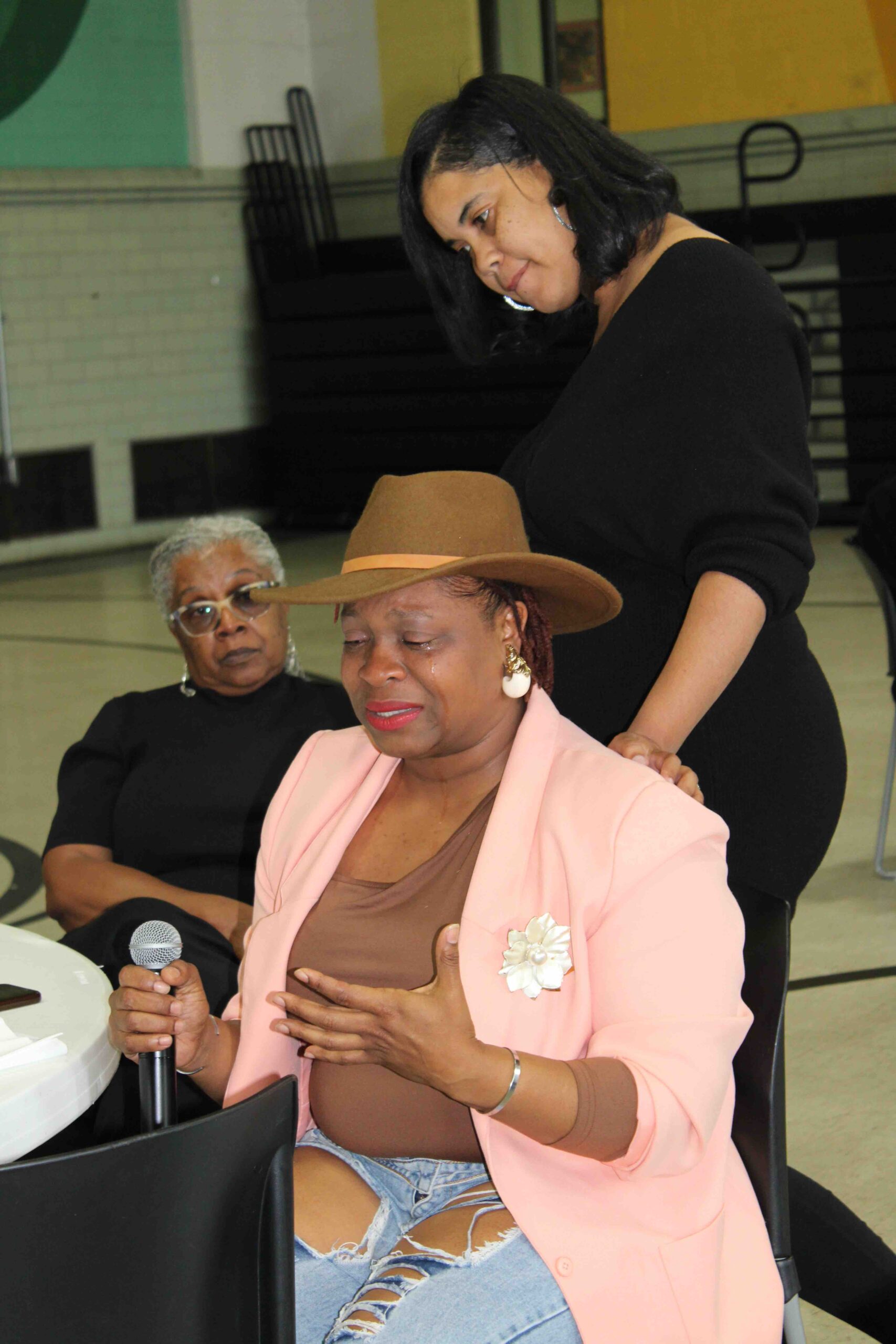
SHARMAINE GAMBLE IS CONSOLED BY DR. SHARNAY HEARN DAVIS (PHOTOS BY CHIEF IKHANA-HAL-MAKINA)
Sorry, the comment form is closed at this time.
